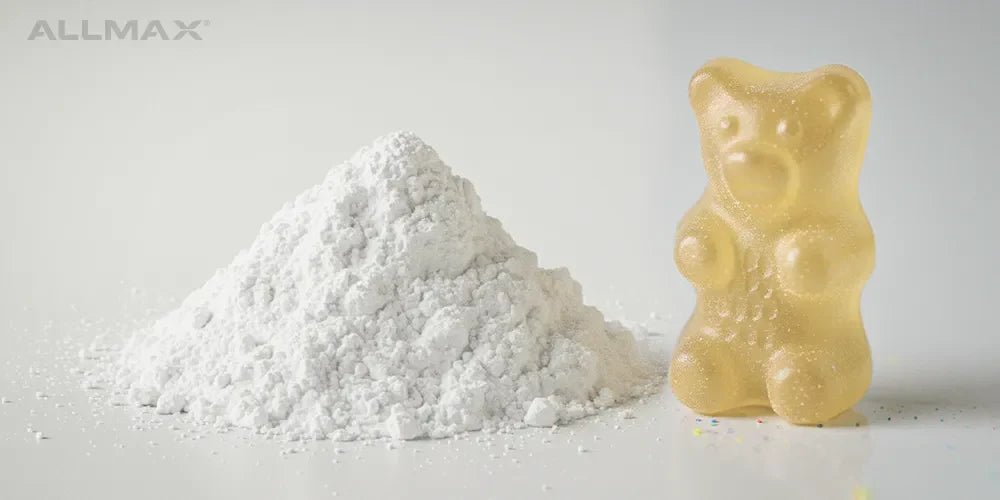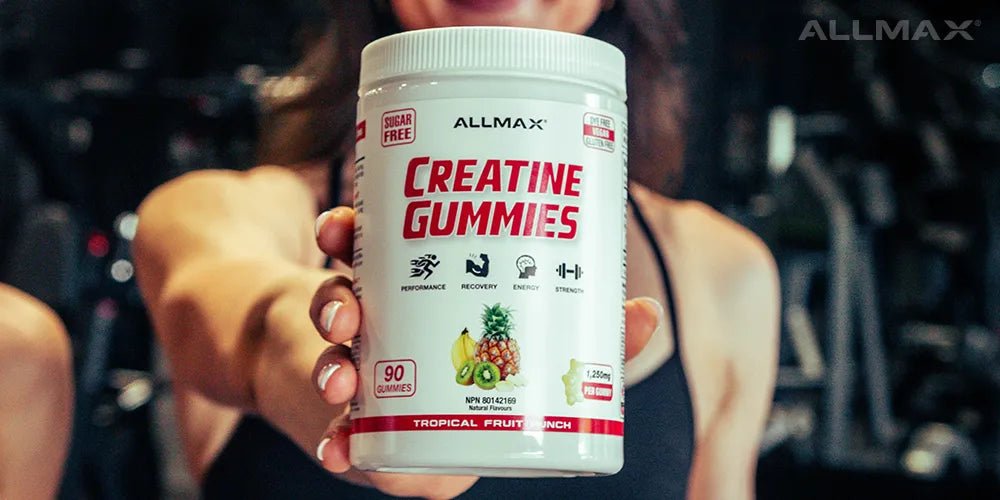Protein powder is among the most common supplement purchased by hard-training athletes and bodybuilders. It helps to ensure they are feeding their muscles after each training session. If you are new at the gym or have jusProtein powder is among the most common supplement purchased by hard-training athletes and bodybuilders. It helps to ensure they are feeding their muscles after each training session. If you are new at the gym or have just started lifting, you may have many questions about protein powders.
- Is protein powder needed in a bodybuilding diet?
- What are the benefits of drinking protein powder?
- How can you choose the best protein powder?
What is Protein Powder?
Protein powder is a condensed form of protein that can originate from animal or plant sources. Here are the three common forms.Protein Concentrates
By extracting protein from whole foods with heat and acid or enzymes, manufacturers make protein concentrates. Usually, these powders are composed of 60 to 80 percent protein.Protein Isolates
Isolates have more protein than concentrates since they go through an additional filtering process. Therefore, protein isolates are about 90 to 95 percent protein.Protein Hydrolysates
This type of lean protein powder is further heated with acid or enzymes, causing the bonds between the amino acids to break. Thus, hydrolysates are consumed more promptly by your muscles. They also raise insulin levels more than other forms of protein powders, enhancing your muscle growth after exercise. Sometimes, protein powders come fortified with other nutrients, such as vitamins and minerals.Importance of Protein Powders
You probably know that it is crucial to supplement your workouts with a quality diet. Lean protein and nutrient-dense foods should be the focus of your meals. If you are still not seeing results, protein powders can help you achieve your goals. Nevertheless, there are several other reasons to consume protein powder regularly. Here are ten reasons that you should include it in your diet!1. Builds and Repair Muscle Tissue
When you digest protein, it breaks down into amino acids. They are the building blocks for synthesizing muscle in the body. Therefore, protein is vital for building muscle. Moreover, we must consume an adequate amount of protein to maintain our lean muscle mass because our body breaks it down. Protein also aids in the reparation of tissues after a workout. So if you aren’t eating enough protein, your body will take longer to recover.2. Balances Blood Sugar
Since your body digests protein slowly, it helps balance the blood sugar levels. In turn, you will have fewer cravings. If you do not eat enough protein with your meal, you will likely have a steep rise in blood sugar. After a short time, your blood sugar levels will fall. As a result, you will feel an energy crash shortly after eating. In contrast, when you eat enough protein with your meal, you prevent these energy crashes from occurring and maintain a healthy blood sugar level. Doing so is especially important for those with insulin resistance, hypoglycemia, and diabetes.3. Fat Burning
Your body uses more calories when digesting protein than carbohydrates and fat. This is because it has a higher thermic effect. Also, protein can boost metabolism and reduce cravings since it leaves you feeling fuller. Consuming more protein can contribute to an overall reduction in body fat percentage.4. Energy Source
Once your body depletes glucose and glycogen stores, it uses protein as an energy source. Thus, during intense exercise or strict diets, protein is vital for producing energy.5. Wound Healing
Protein is essential when it comes to healing injuries and wounds. Since the amino acids produced by protein are responsible for the regeneration of tissues, it is crucial to consume enough protein when you are hurt.6. Improve Your Sleep Quality and Mood
Your body needs certain amino acids to produce neurotransmitters. They create serotonin, adrenaline, dopamine, noradrenaline, and GABA. If your neurotransmitters’ levels are low, you will have an unstable mood and possibly poor sleep quality. When you consume higher amounts of protein, your body uses it to synthesize these neurotransmitters. Elevated amounts of these chemicals can brighten your mood and enhance your sleep quality.7. Strengthens the Immune System
The immune system contains various types of cells that detect, destroy, and fight off foreign pathogens. Protein is needed to synthesize these cells and is required in larger amounts when fighting an infection. By consuming protein powder, you can keep your immune system healthier.8. Promotes Gut Health
Your body uses protein to synthesize enzymes, including the digestive enzymes that our body needs to break down the food we eat. If we do not have enough of these enzymes, we will experience adverse side effects. These may include bloating, acid reflux, pain, or even a lack of nutrient absorption. Certain amino acids are also needed to reduce inflammation and health the gut lining. Protein powder is the key to maintaining your digestive health.9. Healthy Hair, Skin, and Nails
For healthy hair, skin, and nails, we need collagen. It is the most abundant protein in the body and keeps our skin elastic and firm. However, if your diet is not high enough in protein, your body will prioritize the essential functions and neglect hair growth. For a youthful and healthy look, protein powders can do much more than beauty products alone.10. Hormone Function
Hormones contain amino acids, such as growth hormone, prolactin, and insulin. All of these are important for our bodies to stay healthy. When the endocrine glands secrete these hormones, they are bound to proteins that transport them around the body. Therefore, your body needs sufficient protein for healthy hormone function.Types of Protein Powders
Protein powders come in a variety of formulations and from many sources. The type of protein that you take will depend on your goals, preferences, and dietary restrictions.Whey Protein
Are you trying to gain muscle mass? If so, this is the best protein powder for you. Whey is the liquid that separates from curds during the cheesemaking process. Our bodies can digest it quickly, and it is high in protein. Whey is also rich in branched-chain amino acids (BCAAs), which play an essential role in muscle growth and recovery after intense training. If you struggle with lactose intolerance, you should be aware that whey protein concentrate contains some lactose. The isolate version has very little lactose because most of the milk sugar is lost during processing.Casein Protein
If you are trying to lose weight, casein protein is an excellent protein powder since it promotes fullness and fat loss. Like whey, casein comes from milk. However, it is absorbed and digested more slowly. When it meets your stomach acid, casein forms a gel. This gel reduces the speed of amino acid absorption, resulting in a steadier exposure to your muscles.Egg Protein
Eggs, an excellent source of protein, contain all nine essential amino acids that your body can’t make itself. It is also high in leucine, a BCAA that plays the most substantial role in muscle health. If you have dairy intolerances or allergies, it is an excellent alternative to whey or casein.Pea Protein
You may prefer pea protein if you are on a plant-based diet. It is high in almost all the essential amino acids and rich in BCAAs. It absorbs faster than casein but slower than whey protein sources.Hemp Protein
Hemp protein contains a lot of omega-3 fatty acids and many essential amino acids. However, it doesn’t have much lysine or leucine. It is not a whole and complete protein, yet, it is a well-digested plant protein source.Brown Rice Protein
Proteins made from brown rice contain all the essential amino acids. Like hemp protein, brown rice protein is low in lysine. Therefore, it is not the best protein powder.Does Your Bodybuilding Diet Include Enough Protein?
Getting enough protein is essential for everyone, no matter their activity level. However, bodybuilders, lifters, or those who often participate in intense exercise need more protein than average. Here is how to calculate the amount of protein you need daily.- Average adults need 0.8 grams of protein for every kilogram of body weight.
- Those who participate in recreational sports need 1.1 to 1.4 g of protein per kilogram.
- Athletes who are competing need 1.2 to 1.4 grams per kilogram
- Those in ultra-endurance sports need up to 2.0 grams per kilogram of body weight.
- Bodybuilders or those building muscle mass need 1.5 to 2.0 grams per kilogram per day.
Choosing The Right Protein Powder for You
Protein powders can conveniently provide high-quality protein. Consuming protein powder can help you reach your fitness goals faster and improve your overall health. Nonetheless, not all protein powders equal. We maintain the highest grade of manufacturing for all our products, so you can trust the protein powders and dietary supplements you are taking! If you are searching for the best protein powder to complement your bodybuilding diet, check out our online store.t started lifting, you may have many questions about protein powders.- Is protein powder needed in a bodybuilding diet?
- What are the benefits of drinking protein powder?
- How can you choose the best protein powder?
What is Protein Powder?
Protein powder is a condensed form of protein that can originate from animal or plant sources. Here are the three common forms.Protein Concentrates
By extracting protein from whole foods with heat and acid or enzymes, manufacturers make protein concentrates. Usually, these powders are composed of 60 to 80 percent protein.Protein Isolates
Isolates have more protein than concentrates since they go through an additional filtering process. Therefore, protein isolates are about 90 to 95 percent protein.Protein Hydrolysates
This type of lean protein powder is further heated with acid or enzymes, causing the bonds between the amino acids to break. Thus, hydrolysates are consumed more promptly by your muscles. They also raise insulin levels more than other forms of protein powders, enhancing your muscle growth after exercise. Sometimes, protein powders come fortified with other nutrients, such as vitamins and minerals.Importance of Protein Powders
You probably know that it is crucial to supplement your workouts with a quality diet. Lean protein and nutrient-dense foods should be the focus of your meals. If you are still not seeing results, protein powders can help you achieve your goals. Nevertheless, there are several other reasons to consume protein powder regularly. Here are ten reasons that you should include it in your diet!1. Builds and Repair Muscle Tissue
When you digest protein, it breaks down into amino acids. They are the building blocks for synthesizing muscle in the body. Therefore, protein is vital for building muscle. Moreover, we must consume an adequate amount of protein to maintain our lean muscle mass because our body breaks it down. Protein also aids in the reparation of tissues after a workout. So if you aren’t eating enough protein, your body will take longer to recover.2. Balances Blood Sugar
Since your body digests protein slowly, it helps balance the blood sugar levels. In turn, you will have fewer cravings. If you do not eat enough protein with your meal, you will likely have a steep rise in blood sugar. After a short time, your blood sugar levels will fall. As a result, you will feel an energy crash shortly after eating. In contrast, when you eat enough protein with your meal, you prevent these energy crashes from occurring and maintain a healthy blood sugar level. Doing so is especially important for those with insulin resistance, hypoglycemia, and diabetes.3. Fat Burning
Your body uses more calories when digesting protein than carbohydrates and fat. This is because it has a higher thermic effect. Also, protein can boost metabolism and reduce cravings since it leaves you feeling fuller. Consuming more protein can contribute to an overall reduction in body fat percentage.4. Energy Source
Once your body depletes glucose and glycogen stores, it uses protein as an energy source. Thus, during intense exercise or strict diets, protein is vital for producing energy.5. Wound Healing
Protein is essential when it comes to healing injuries and wounds. Since the amino acids produced by protein are responsible for the regeneration of tissues, it is crucial to consume enough protein when you are hurt.6. Improve Your Sleep Quality and Mood
Your body needs certain amino acids to produce neurotransmitters. They create serotonin, adrenaline, dopamine, noradrenaline, and GABA. If your neurotransmitters’ levels are low, you will have an unstable mood and possibly poor sleep quality. When you consume higher amounts of protein, your body uses it to synthesize these neurotransmitters. Elevated amounts of these chemicals can brighten your mood and enhance your sleep quality.7. Strengthens the Immune System
The immune system contains various types of cells that detect, destroy, and fight off foreign pathogens. Protein is needed to synthesize these cells and is required in larger amounts when fighting an infection. By consuming protein powder, you can keep your immune system healthier.8. Promotes Gut Health
Your body uses protein to synthesize enzymes, including the digestive enzymes that our body needs to break down the food we eat. If we do not have enough of these enzymes, we will experience adverse side effects. These may include bloating, acid reflux, pain, or even a lack of nutrient absorption. Certain amino acids are also needed to reduce inflammation and health the gut lining. Protein powder is the key to maintaining your digestive health.9. Healthy Hair, Skin, and Nails
For healthy hair, skin, and nails, we need collagen. It is the most abundant protein in the body and keeps our skin elastic and firm. However, if your diet is not high enough in protein, your body will prioritize the essential functions and neglect hair growth. For a youthful and healthy look, protein powders can do much more than beauty products alone.10. Hormone Function
Hormones contain amino acids, such as growth hormone, prolactin, and insulin. All of these are important for our bodies to stay healthy. When the endocrine glands secrete these hormones, they are bound to proteins that transport them around the body. Therefore, your body needs sufficient protein for healthy hormone function.Types of Protein Powders
Protein powders come in a variety of formulations and from many sources. The type of protein that you take will depend on your goals, preferences, and dietary restrictions.Whey Protein
Are you trying to gain muscle mass? If so, this is the best protein powder for you. Whey is the liquid that separates from curds during the cheesemaking process. Our bodies can digest it quickly, and it is high in protein. Whey is also rich in branched-chain amino acids (BCAAs), which play an essential role in muscle growth and recovery after intense training. If you struggle with lactose intolerance, you should be aware that whey protein concentrate contains some lactose. The isolate version has very little lactose because most of the milk sugar is lost during processing.Casein Protein
If you are trying to lose weight, casein protein is an excellent protein powder since it promotes fullness and fat loss. Like whey, casein comes from milk. However, it is absorbed and digested more slowly. When it meets your stomach acid, casein forms a gel. This gel reduces the speed of amino acid absorption, resulting in a steadier exposure to your muscles.Egg Protein
Eggs, an excellent source of protein, contain all nine essential amino acids that your body can’t make itself. It is also high in leucine, a BCAA that plays the most substantial role in muscle health. If you have dairy intolerances or allergies, it is an excellent alternative to whey or casein.Pea Protein
You may prefer pea protein if you are on a plant-based diet. It is high in almost all the essential amino acids and rich in BCAAs. It absorbs faster than casein but slower than whey protein sources.Hemp Protein
Hemp protein contains a lot of omega-3 fatty acids and many essential amino acids. However, it doesn’t have much lysine or leucine. It is not a whole and complete protein, yet, it is a well-digested plant protein source.Brown Rice Protein
Proteins made from brown rice contain all the essential amino acids. Like hemp protein, brown rice protein is low in lysine. Therefore, it is not the best protein powder.Does Your Bodybuilding Diet Include Enough Protein?
Getting enough protein is essential for everyone, no matter their activity level. However, bodybuilders, lifters, or those who often participate in intense exercise need more protein than average. Here is how to calculate the amount of protein you need daily.- Average adults need 0.8 grams of protein for every kilogram of body weight.
- Those who participate in recreational sports need 1.1 to 1.4 g of protein per kilogram.
- Athletes who are competing need 1.2 to 1.4 grams per kilogram
- Those in ultra-endurance sports need up to 2.0 grams per kilogram of body weight.
- Bodybuilders or those building muscle mass need 1.5 to 2.0 grams per kilogram per day.



